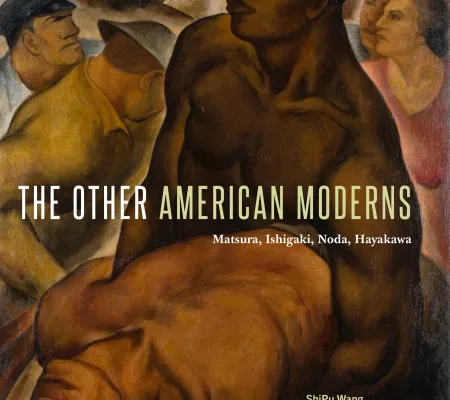How are figures of the Other deployed in narratives of diaspora? Is there fundamentally discernible “difference” in artistic/visual representations by and of diasporic communities? ShiPu Wang’s lecture examines some of the pictorial strategies that diasporic Japanese American artists deployed to confront and reimagine “Americanism” and its inherent ideological complexities in the Exclusion Era (1882—1952), a time of institutionalized xenophobia. In excavating their “forgotten” work, Wang interrogates the structural prejudice with which these artists grappled in their imagery and, more broadly, how such bias has manifested in the marginalization of these artists’ work within the context of American art museums and art historical narratives.
ShiPu Wang is the Coats Family Chair in the Arts and Professor of Art History in the Global Arts, Media, and Writing Studies Program at the University of California, Merced. His research has focused on rediscovering and examining pre-WWII American art and visual culture produced by diasporic artists of Japanese descent. A 2014 Terra Foundation for American Art Senior Fellow at the Smithsonian American Art Museum, he received the museum’s 2008 Patricia and Phillip Frost Essay Award for his essay in American Art, the museum's academic journal, and joined its editorial board in 2018. His second book, The Other American Moderns. Matsura, Ishigaki, Noda, Hayakawa (Penn State University Press, 2017), won the Georgia O'Keeffe Museum 2018 Book Prize. In addition, Wang has authored two more books: Becoming American? The Art and Identity Crisis of Yasuo Kuniyoshi (2011); and Chiura Obata: An American Modern (2018), an exhibition catalogue published by the University of California Press to accompany a retrospective of the same name that he curated. The exhibition, organized by UC Santa Barbara’s Art, Design & Architecture Museum, has toured internationally and is currently on a six-month display at the Smithsonian American Art Museum (November 27, 2019—May 25, 2020).


